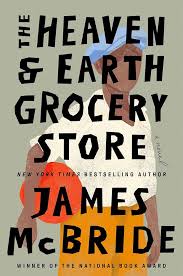Acknowledgments
byAcknowledgments often serve as a quiet tribute to the individuals whose presence shaped a project, even if they never appeared on the page. This story began with a deep admiration for Sy Friend, a man whose legacy in disability advocacy remains deeply personal to me. During my college years at Oberlin, I spent four summers at the Variety Club Camp for Handicapped Children, where Sy’s leadership was defined not by lofty speeches, but by the daily dignity he extended to every child.
His actions spoke of a time when inclusivity was not a buzzword but a personal mission carried out quietly and consistently. He was never theatrical, but always present—his kindness rooted in real, observable impact. I learned there, among the pine trees and bunk beds, that true leadership is best measured by the ripple effects it leaves on others, not by accolades or attention.
I remain indebted to the extended camp family, who exemplified Sy’s values in ways big and small. Leo and Vera Posel gave more than land—they laid the foundation for generations of healing and discovery. Bill Saltzman saw something in me at nineteen that I hadn’t yet recognized in myself, nudging me toward mentorship when all I wanted was a paycheck and kitchen work. Then there’s Vinny Carissimi, who showed that loyalty transcends profession—his legal counsel saved many of us more times than I’d like to admit.
Sy’s life was a masterclass in service. He embodied vitality, pacing through camp in spotless white sneakers, opera arias seemingly guiding his every movement. He had an uncanny memory for names—campers, their families, their stories—because people were never background characters in his world. His staff was intentionally diverse before anyone asked for it, and though the days were long and the pay modest, we left with a kind of wealth that only character-building can offer.
The memory of Sy’s nightly ritual remains crystal clear. At bedtime, he’d play an old recording of taps, his voice gently following with “Good night boys and girls.” Those few words carried weight, spoken not to the masses, but to each child, as if it were meant just for them. As night settled, you could hear their hushed replies from inside the cabins: “Good night, Uncle Sy,” echoing softly across the trees.
He never allowed air conditioning, insisting that the children deserved to feel the wind on their skin. It was more than practicality—it was his way of reminding everyone that life should be experienced fully, even through its discomforts. To him, these kids weren’t fragile beings to be sheltered, but whole individuals capable of strength, expression, and joy.
Sy was more than a summer figure; he was a principal in the Philadelphia school system during the academic year, and a summer legend to us. One story that captures his quiet power came from Lamont Garland, a determined kid from North Philly who relied on crutches his whole life due to cerebral palsy. Lamont worked at the Philadelphia Electric Company for over two decades, proof that perseverance is not bound by diagnosis.
He once told me about Sy visiting his school, the Widener Memorial School, a historic institution known for its dedication to educating students with disabilities. Lamont was no more than eight at the time, and his face lit up as he remembered it. Sy had no official reason to be there. He wasn’t a speaker, teacher, or parent that day. He simply walked into their school assembly unannounced.
And the children, instinctively, stood up. No cue was given, no introduction necessary. Just the presence of someone they admired and trusted. Lamont described the moment with the reverence of a man who, decades later, still held onto that sense of wonder. It wasn’t about what Sy said—it was about who he was.
This memory—this unspoken acknowledgment from children who needed no prompting—is the most powerful endorsement anyone could ever receive. I think about that scene often: a crowded auditorium filled with wheelchairs, walkers, and resilience, rising in unison for a man who saw them not as disabled, but as complete.
These acknowledgments are not merely a formal nod at the close of a book—they are my attempt to pass along a torch. To remember those who taught me what real equity looks like, not in theories or slogans, but in action. To those who build spaces where everyone feels seen and valued: this is for you.
If you’ve ever sat beside a child and listened more than you spoke, if you’ve ever made someone feel less alone simply by showing up, then you understand the legacy Sy left behind. He was a champion of possibility, a believer in second chances, and a quiet architect of futures that might never have existed otherwise.
May this book carry just a fragment of the empathy and resolve he instilled in those of us lucky enough to cross his path. And may readers be reminded that the most powerful stories we leave behind are often the ones we live every day—without needing to be told.


